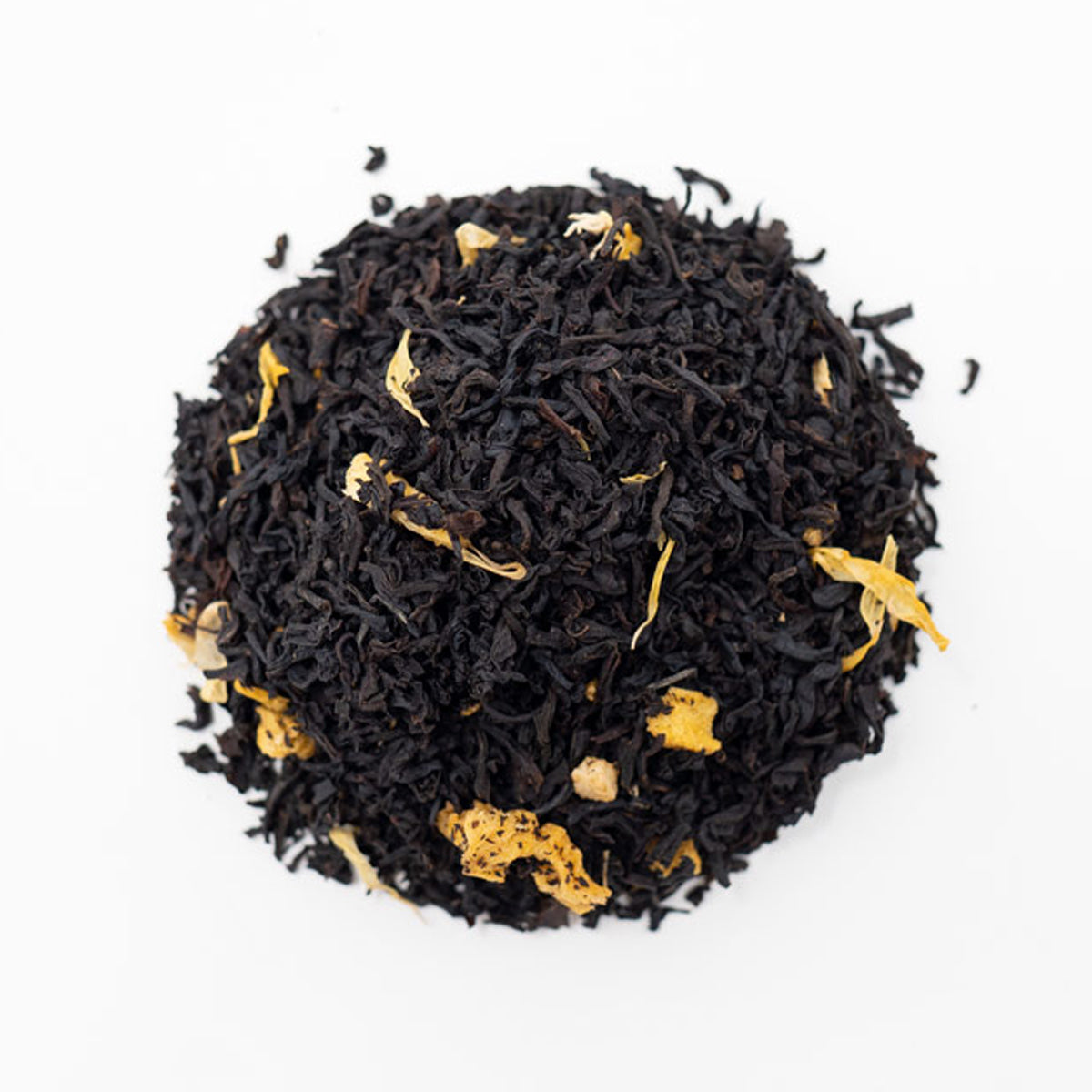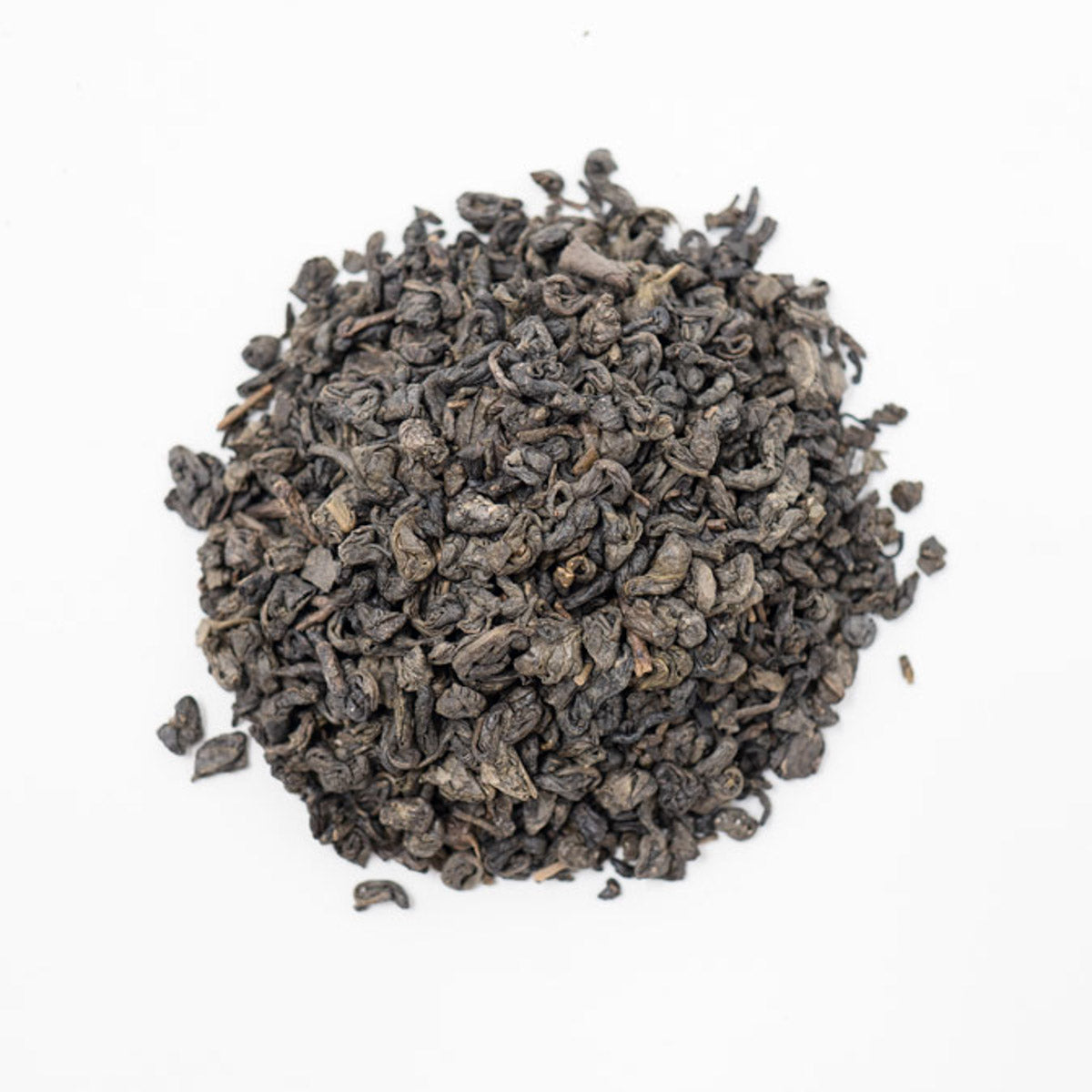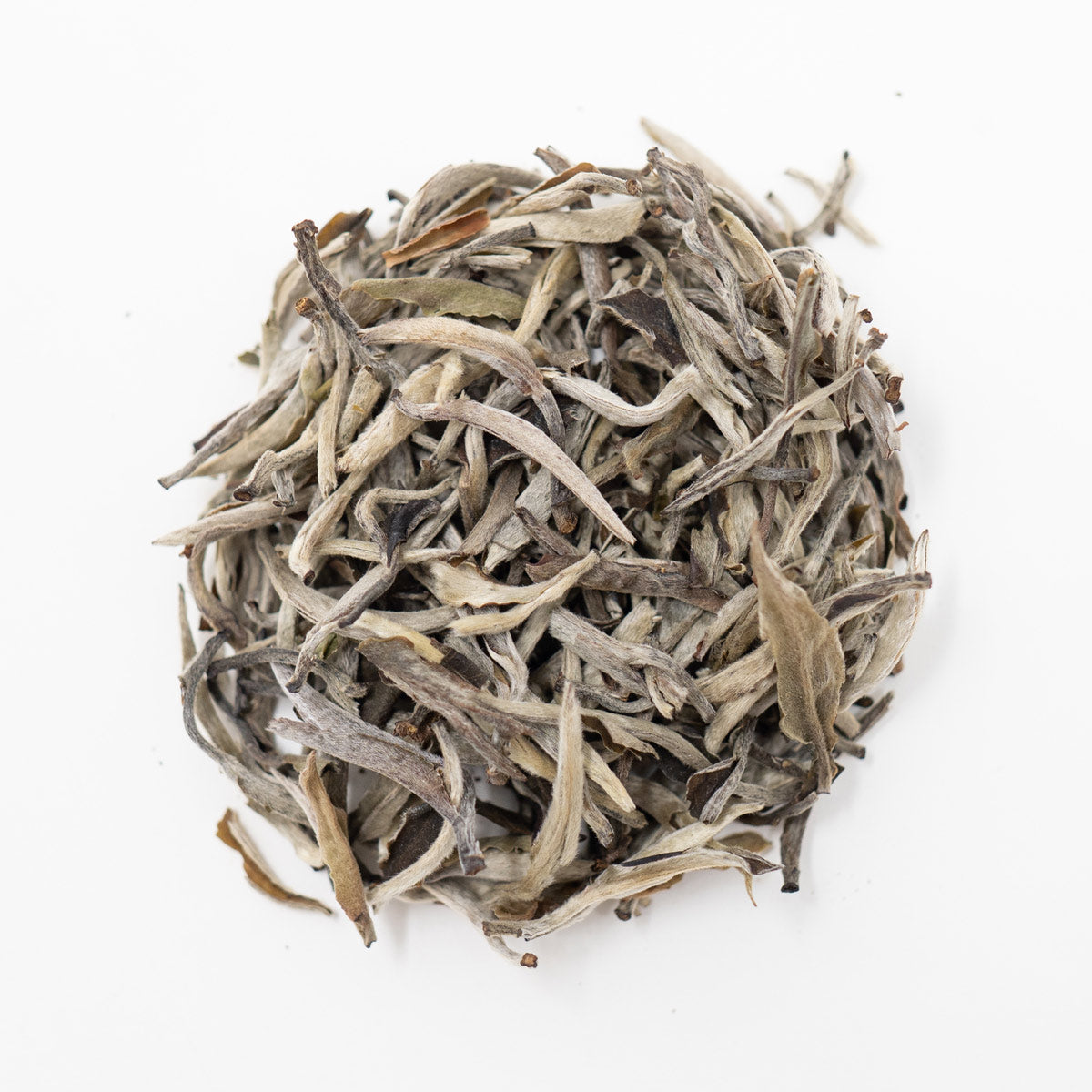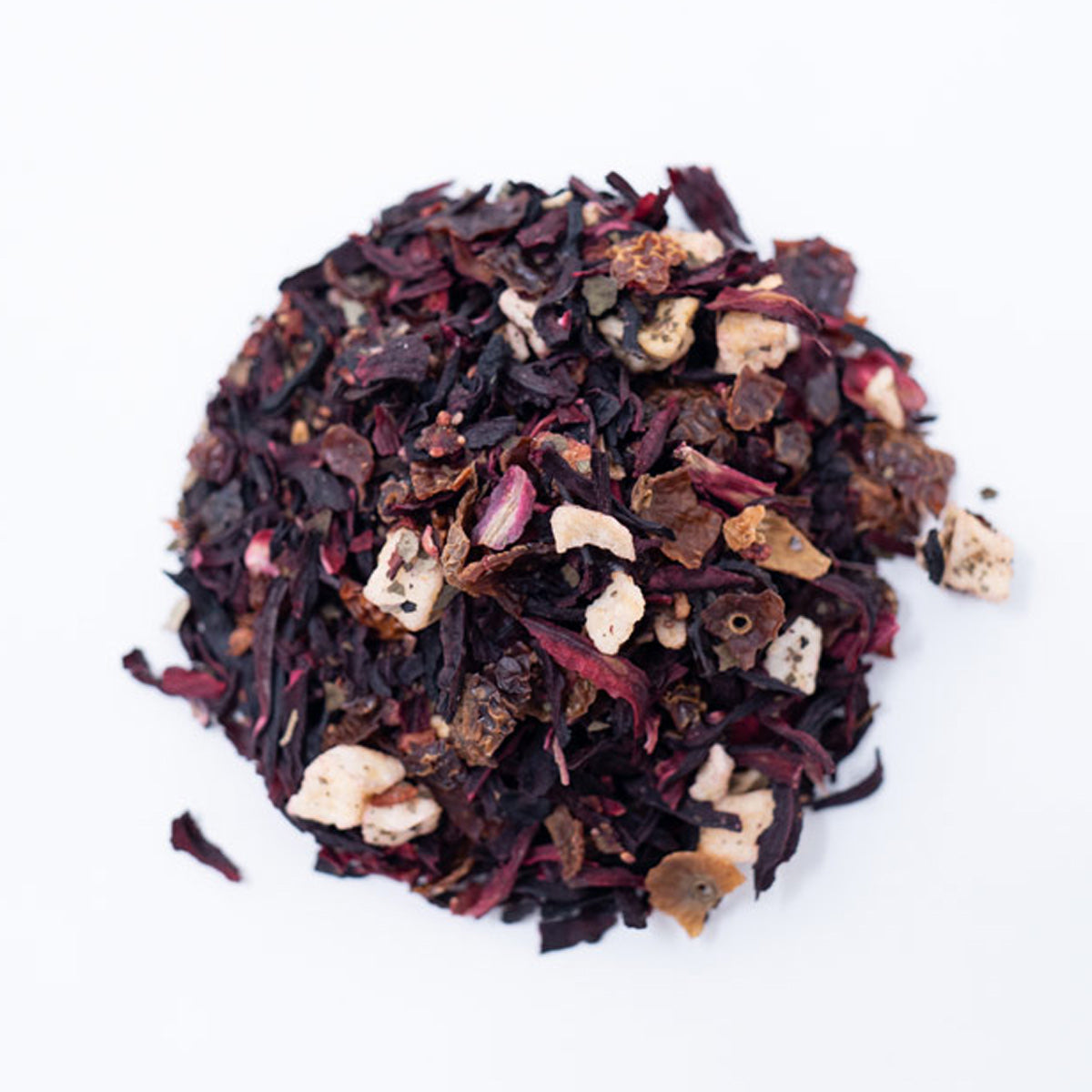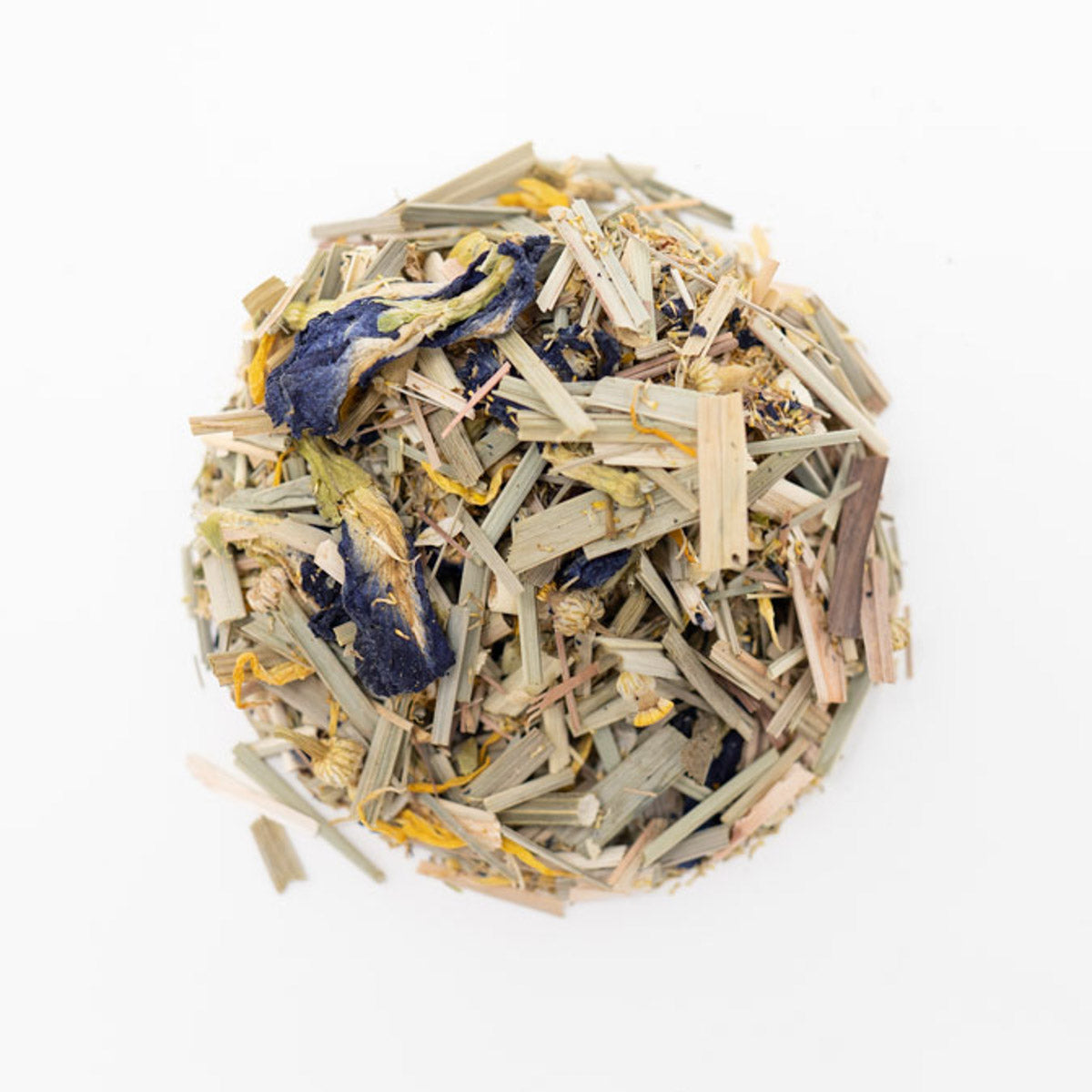Fruit Tea 101: History & Benefits
Fruit tea, served hot or cold, is naturally sweet and deliciously refreshing. But what exactly are we drinking when we drink fruit tea? Well, for starters, it may surprise you to hear that fruit tea is not technically ‘tea’. Tea in the truest sense only comes from the leaves of the Camellia Sinensis plant and includes all black, green, and white teas.
What we call ‘herbal' tea is just a broad name for any plant-based infusion that doesn’t come from the Camellia sinensis plant. Since fruit teas don’t use leaves from this plant, the technical name for them is a ‘tisane’--meaning, an infusion of dried fruits, flowers, and herbs. Teas like peppermint, chamomile, honeybush, and rooibos would also fall into this ‘herbal’ category–most of which are caffeine-free. And while they may not be teas in the technical sense, herbal teas have some pretty enticing health benefits.
History and Health Benefits of Fruit Teas
Historically speaking, people have been using plants and herbs for medicine for a long time. The earliest record of people drinking infusions–or, beverages made by steeping plants, herbs, or fruits in hot water to extract their flavors and compounds–dates back to 2737 BC in China. It’s said that Emperor Shennong accidentally discovered tea when leaves from the Camellia sinensis plant fell into his boiled water and, voila!--tea. Similarly, herbs have been appreciated for their health benefits for centuries. For example, we have a record of Ancient Egypt storing dried peppermint leaves, presumably for medicinal purposes.
What ancient civilizations did back in the day through trial and error, we do now with microscopes and clinical studies. We can look at dried fruits on a microscopic level and actually see what things like antioxidants do! Studies in recent years have confirmed that because many fruits are high in antioxidants, they can help lower inflammation, heart disease risk, and even improve skin. Not only that, but because they’re also high in Vitamins A and C, studies have shown fruit teas to help with improving your immune system and even aiding in digestion. Outside of fruit teas, there are other herbal teas that offer an array of health benefits depending on their ingredients. Turmeric has been shown to help with arthritis. Ginger has been shown to help with nausea. Other ingredients like peppermint, hibiscus, and chamomile are sought after for their stress-relieving, blood-pressure-lowering, sleep-aiding assistance. And it’s not just herbal teas–traditional teas, to different extents, have been shown to lower cholesterol, improve cognitive function, and improve overall gut health.
Just like everything else, while some tea may have positive effects, some should be avoided in certain situations. For example, some teas can have an adverse effect during pregnancy. It's always best to check with a health professional before prescribing tea as a medicine for yourself.
We’ve spent a lot of time discussing the possible health benefits of tea and haven’t even touched on how delicious they are! Even without health benefits, fruit teas can be a mood-boosting experience just because of their delicious taste and array of refreshing ingredients. With the vast number of fruits in the world, the possibilities when it comes to taste are almost endless: mango, peach, strawberry, lemon, and berries–the list goes on. Of course, not all fruit teas are created equal. If low-quality teas are sourced, the tea itself will be flavorless and bland. Choosing quality tea, however, will mean that, no matter which tea you order, it’s smooth, refreshing, fragrant, and delicious!
Explore our high-quality, delicious, fruit teas here!
